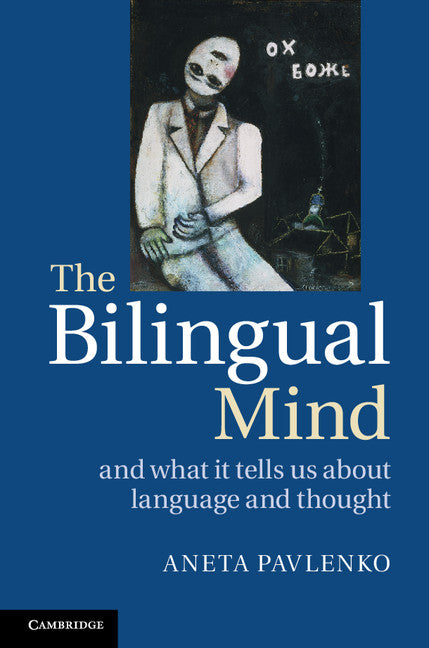Freshly Printed - allow 8 days lead
Couldn't load pickup availability
The Bilingual Mind
And What it Tells Us about Language and Thought
If languages influence the way we think, do bilinguals think differently in their respective languages?
Aneta Pavlenko (Author)
9780521716567, Cambridge University Press
Paperback, published 6 February 2014
400 pages, 14 tables
22.7 x 15 x 2.1 cm, 0.58 kg
'Aneta Pavlenko addresses the intriguing relationship between language and thought in bi- and multilinguals in a unique, comprehensive and refreshing manner. Her beautifully written and lively work deserves to become a milestone in the field.' François Grosjean, University of Neuchâtel
If languages influence the way we think, do bilinguals think differently in their respective languages? And if languages do not affect thought, why do bilinguals often perceive such influence? For many years these questions remained unanswered because the research on language and thought had focused solely on the monolingual mind. Bilinguals were either excluded from this research as 'unusual' or 'messy' subjects, or treated as representative speakers of their first languages. Only recently did bi- and multilinguals become research participants in their own right. Pavlenko considers the socio-political circumstances that led to the monolingual status quo and shows how the invisibility of bilingual participants compromised the validity and reliability of findings in the study of language and cognition. She then shifts attention to the bilingual turn in the field and examines its contributions to the understanding of the human mind.
1. The Sapir-Whorf Hypothesis and the bilingual turn in the study of language and cognition
2. Material worlds: linguistic categorization of the 'kaleidoscopic flux of impressions'
3. Multidimensional worlds: number, time, and space as linguistic systems of symbolic relationships
4. Dynamic worlds: linguistic construal of motion events
5. Narrative worlds: locating ourselves in storylines
6. Discursive worlds: inner speech, interpretive frames, and the accomplishment of intersubjectivity
7. Emotional worlds: emotion categorization, affective processing, and ascription of significance
8. The bilingual mind and what it tells us about language and cognition: some renegade thoughts.
Subject Areas: Child & developmental psychology [JMC], Psycholinguistics [CFD]


